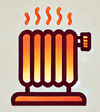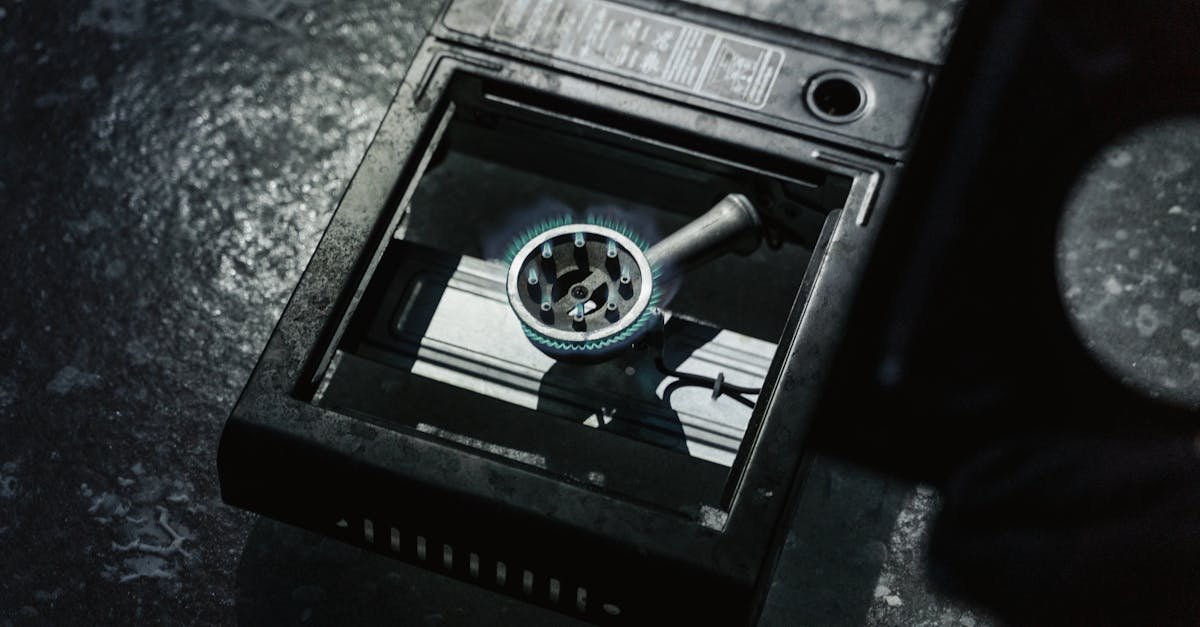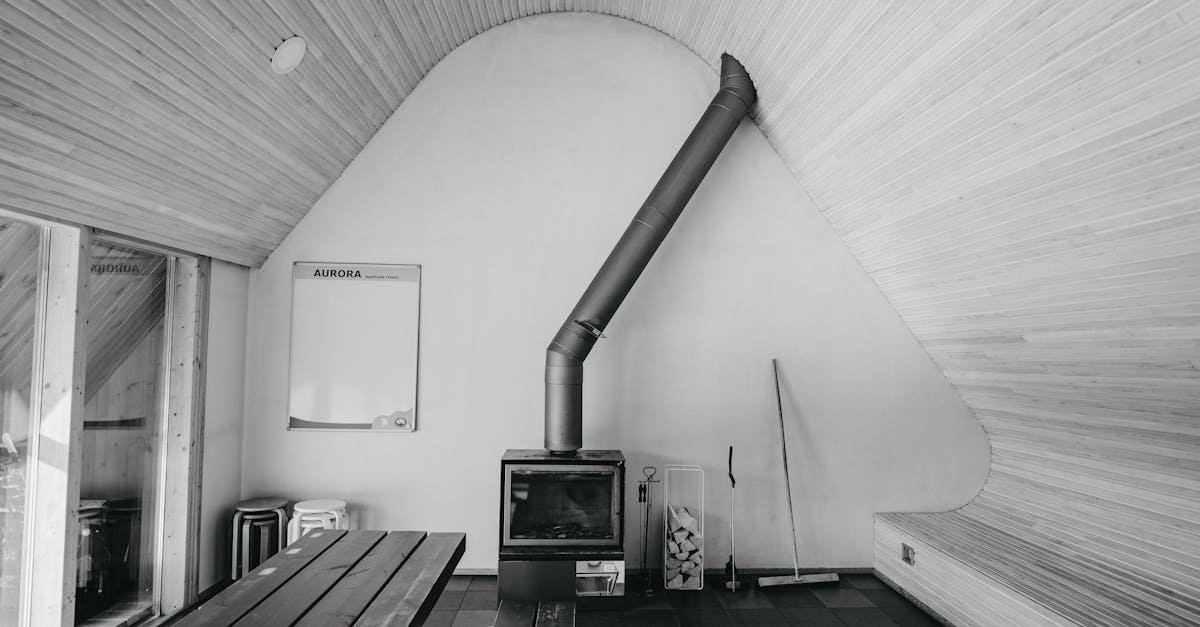Propane heaters are known for their impressive fuel efficiency, often converting up to 95% of propane into usable heat. This means less fuel is wasted, making them a cost-effective choice for heating your space. With their ability to heat quickly and effectively, propane heaters can significantly lower your energy bills while providing consistent warmth.
When considering fuel efficiency, it’s essential to look at the heater’s BTU rating and how well it maintains temperature. Opting for models with advanced technology can further enhance efficiency, ensuring you get the most out of your propane. Understanding these factors can help you make an well-informed choice for your heating needs.
Understanding Propane Heater Fuel Efficiency
Fuel efficiency plays a crucial role in how well your propane heater operates. It describes how effectively the heater converts propane into heat, minimizing waste. A high efficiency rating indicates superior performance and lower energy usage.
Definition of Fuel Efficiency
Fuel efficiency in propane heaters refers to the percentage of propane energy converted into usable heat. This metric helps you understand how much fuel is truly benefiting your space. For instance, some propane heaters achieve ratings as high as 96 percent. This means they convert almost all the fuel into heat, making them very efficient.
Importance of Fuel Efficiency in Heating
High fuel efficiency provides significant economic advantages. When your heater uses less fuel to generate the same amount of heat, you save money on energy bills. Take the Modine Effinity 93, for example. It operates at 93% efficiency. This high rating leads to lower gas consumption and reduced energy costs. By choosing efficient models, you gain more heat without the extra expense, making your heating solution both effective and economical.
Factors Affecting Propane Heater Fuel Efficiency
Understanding the factors that affect fuel efficiency helps you make informed choices about propane heaters. Several elements contribute to how effectively these heaters use fuel.
Heater Design and Technology
Heater design plays a crucial role in fuel efficiency. High-efficiency ratings indicate how well a heater converts fuel into usable heat. Propane furnaces often have Annual Fuel Utilization Efficiency (AFUE) ratings between 90% and 98%. Advanced features like two-stage gas burners and variable-speed motors enhance performance, providing steady heat while using less fuel. Also, propane water heaters, both tankless and storage types, often outperform electric models. For instance, a tankless propane water heater can save you up to 50% on energy costs, producing 70% fewer greenhouse gas emissions over its lifespan. These technologies significantly boost heating efficiency and lower energy bills.
Maintenance and Care
Regular maintenance ensures your propane heater operates at peak efficiency. Routine tasks include checking filters and cleaning burners. Clean equipment runs more effectively, maximizing heat output from fuel used. Neglecting maintenance can lead to inefficiencies, resulting in wasted fuel and higher costs. A professional inspection before the heating season can also catch potential issues early, maintaining optimal performance.
Environmental Conditions
Environmental factors impact how efficiently your propane heater functions. Extreme temperatures can strain your heater, affecting its fuel consumption. A properly insulated home retains heat better, reducing the workload on your heater. Also, local climate conditions play a role. In warmer regions, the heater may use less fuel than in colder areas. Adapting your heating strategy to suit your environment can lead to better fuel efficiency and cost savings.
Comparing Propane Heater Fuel Efficiency to Other Fuels
Propane heaters provide impressive fuel efficiency compared to other heating options. They burn cleanly and generate significant heat with minimal waste. Here’s how propane stacks up against natural gas and electric heating.
Propane vs. Natural Gas
Propane typically offers higher efficiency than natural gas. Propane heaters can reach efficiency ratings of 90% or more, with some hitting 98%. In contrast, natural gas heaters often max out around 85% efficiency. Propane produces fewer carbon emissions, making it an eco-friendly choice. For instance, the Modine Effinity 93 runs at 93% efficiency, providing heat while lowering CO2 output by about 13%. You gain both environmental benefits and cost savings with propane.
Propane vs. Electric Heating
Propane heaters usually outperform electric heaters in efficiency. Propane can convert up to 95% of fuel into usable heat, while electric heaters convert around 100% of energy but at a higher cost due to electricity prices. Propane also heats spaces faster than electric options. This speed not only ensures comfort but also reduces energy use in the long run. Also, propane remains effective in colder climates when electric options may struggle. With rising electricity costs, propane remains a viable choice for efficient heating.
Understanding these comparisons can help you choose the most efficient heating option for your needs.
Improving Propane Heater Fuel Efficiency
Maintaining high fuel efficiency in propane heaters is vital for cost savings and effective heating. Simple steps can improve performance and extend the life of your heater.
Regular Maintenance Tips
- Check filters regularly. Dirty filters can restrict airflow, reducing efficiency. Clean or replace them every month during heating seasons.
- Inspect burners. Clean burners to ensure even heat distribution. A buildup of dirt can lead to incomplete combustion, wasting fuel.
- Schedule annual inspections. Professionals can catch issues before they escalate. This proactive approach helps maintain efficiency.
- Keep vents clear. Ensure that exhaust and intake vents remain unobstructed. Blocked vents can lead to safety issues and increased fuel consumption.
- Monitor pressure levels. Check propane levels regularly. Low pressure may affect performance and efficiency.
- Set schedules. Smart thermostats allow you to program heating schedules. This feature ensures your heater operates only when needed, saving energy.
- Use sensors. Many smart thermostats can track temperatures and adjust settings automatically. This responsiveness enhances efficiency.
- Monitor usage. Smart thermostats provide insights into your heating habits. Use this data to make informed decisions about settings and usage patterns.
- Remote access. Adjust your heater settings from anywhere using your smartphone. This convenience allows you to optimize efficiency on the go.
- Integrate with other smart devices. Connect your thermostat to smart home systems. This integration enables automated routines that enhance fuel efficiency.
Conclusion
Maximizing the fuel efficiency of your propane heater is key to achieving both comfort and cost savings. By selecting high-efficiency models and adhering to maintenance best practices, you can significantly enhance performance. Regular upkeep and the integration of smart technology can further optimize your heating system.
As you weigh your options, remember, propane heaters not only provide efficient heating but also offer environmental benefits. With a deeper understanding of fuel efficiency, you’re now equipped to make informed decisions that align with your heating needs and budget. Embrace the advantages of propane heating and enjoy a warm, economical home.








